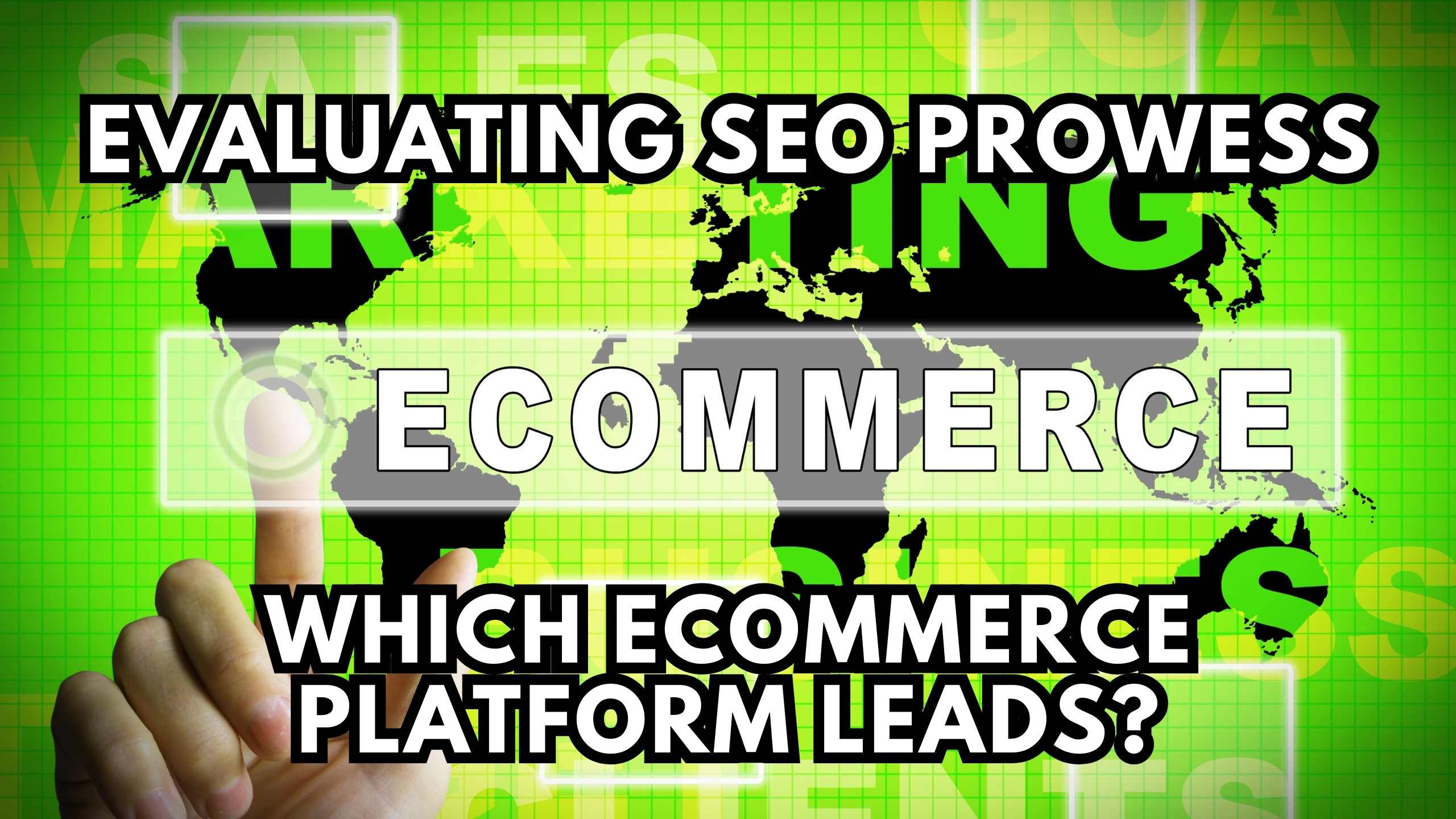Evaluating SEO Prowess: Which eCommerce Platform Leads?
- Data as a Service (DaaS) Software Marketing & Analytics


Evaluating SEO Prowess: Which eCommerce Platform Leads?
In the competitive landscape of eCommerce, the choice of an eCommerce platform significantly influences a website’s SEO performance. This blog aims to thoroughly evaluate the SEO capabilities of various eCommerce platforms, shedding light on the features that make them stand out in the digital realm. Whether you’re a small business owner or an entrepreneur planning to launch an online store, understanding the SEO strengths of eCommerce platforms is crucial for sustainable online success.
1. Shopify: Optimizing for Accessibility and User Experience
Shopify, a leading eCommerce platform, excels in optimizing websites for accessibility and user experience. Its user-friendly interface and built-in SEO features make it an ideal choice for businesses focusing on reaching a wider audience. With features like customizable meta tags, clean URL structures, and mobile responsiveness, Shopify enhances a website’s search engine visibility.
2. WooCommerce: Harnessing the Power of WordPress SEO
WooCommerce, seamlessly integrated with WordPress, capitalizes on the robust SEO capabilities of the world’s leading content management system. Leveraging WordPress’s SEO-friendly architecture, WooCommerce offers users extensive control over optimizing content, meta descriptions, and permalinks. Its flexibility allows businesses to tailor their SEO strategies according to their unique needs and preferences.
3. Magento: Catering to Large-Scale eCommerce SEO
For enterprises requiring a scalable solution, Magento emerges as a powerful eCommerce platform with robust SEO capabilities. Magento’s architecture is designed to handle large-scale eCommerce operations, providing advanced SEO features such as customizable URL structures, canonical tags, and schema markup. These features empower businesses with the tools needed to enhance their SEO performance on a grand scale.
4. BigCommerce: Streamlining SEO for Growing Businesses
BigCommerce, known for its scalability and ease of use, offers a range of SEO-friendly features tailored for growing businesses. The platform ensures that essential SEO elements, including meta tags, header tags, and sitemaps, are easily customizable. BigCommerce’s focus on mobile responsiveness and page speed optimization contributes to an enhanced user experience, positively impacting search engine rankings.
5. Wix eCommerce: Balancing Simplicity and SEO
Wix eCommerce strikes a balance between simplicity and effective SEO strategies. This platform simplifies the SEO process for users who may not be SEO experts, offering an intuitive interface for optimizing meta titles, descriptions, and image alt text. While not as robust as some other platforms, Wix eCommerce is an accessible option for businesses prioritizing a user-friendly experience.
Relevant SaaS Products for eCommerce SEO Enhancement
In the realm of eCommerce SEO, leveraging specialized SaaS tools can provide a competitive edge. Here are five relevant SaaS products that can enhance the SEO performance of eCommerce platforms:
- SEMrush: SEMrush offers comprehensive SEO tools, including keyword research, site audits, and competitor analysis. For eCommerce platforms, SEMrush provides insights into keyword strategies, allowing businesses to optimize their product pages and stay ahead in the competitive landscape.
- Ahrefs: Ahrefs specializes in backlink analysis and SEO audits. eCommerce websites can benefit from Ahrefs by monitoring their backlink profiles, identifying areas for improvement, and strategizing link-building efforts to boost online authority.
- Yoast SEO: While originally a WordPress plugin, Yoast SEO provides valuable SEO features for WooCommerce users. It helps optimize product pages, meta tags, and content, ensuring that eCommerce websites built on WordPress perform well in search engine rankings.
- Google Analytics: Google Analytics is a fundamental tool for tracking and analyzing website traffic. For eCommerce platforms, it provides insights into user behavior, conversion tracking, and the performance of marketing efforts, enabling data-driven SEO optimizations.
- Screaming Frog SEO Spider: This tool is essential for conducting technical SEO audits. eCommerce platforms can utilize Screaming Frog to identify and fix issues related to URL structures, redirects, and other technical aspects that impact search engine rankings.
Conclusion
Choosing the right eCommerce platform is a pivotal decision that directly influences the SEO success of an online store. Each platform comes with its unique set of SEO features, catering to different business needs and preferences. Whether it’s the user-friendly approach of Shopify, the integration capabilities of WooCommerce, the scalability of Magento, the simplicity of Wix eCommerce, or the balanced features of BigCommerce, businesses must align their choice with their SEO goals.
Optimize Your eCommerce SEO with Subscribed.fyi!
Ready to enhance your eCommerce SEO strategy? Sign up for free on Subscribed.fyi to unlock exclusive deals on essential SaaS tools. Access savings on SEMrush, Ahrefs, Yoast SEO, Google Analytics, and Screaming Frog SEO Spider to elevate your SEO game and manage your SaaS subscriptions efficiently.
Explore More:








